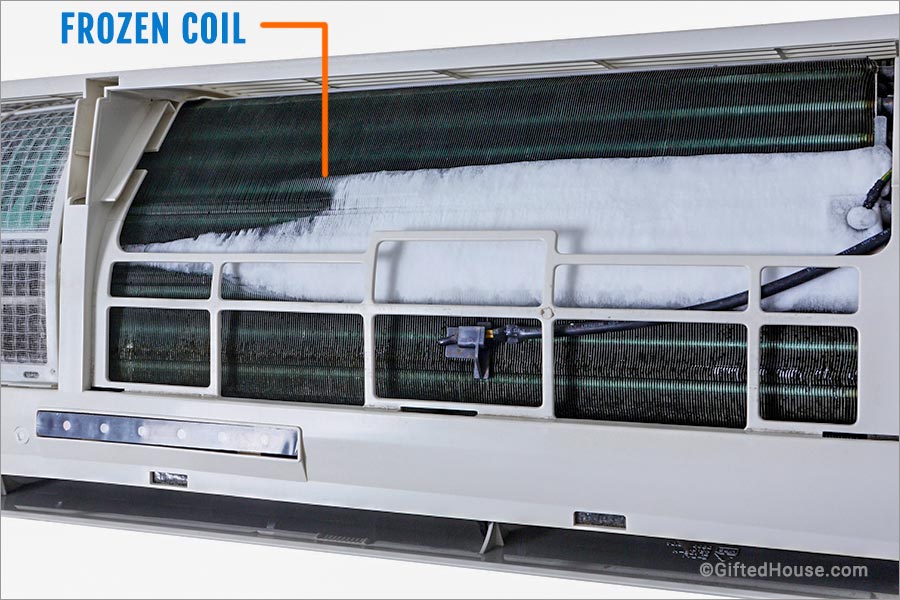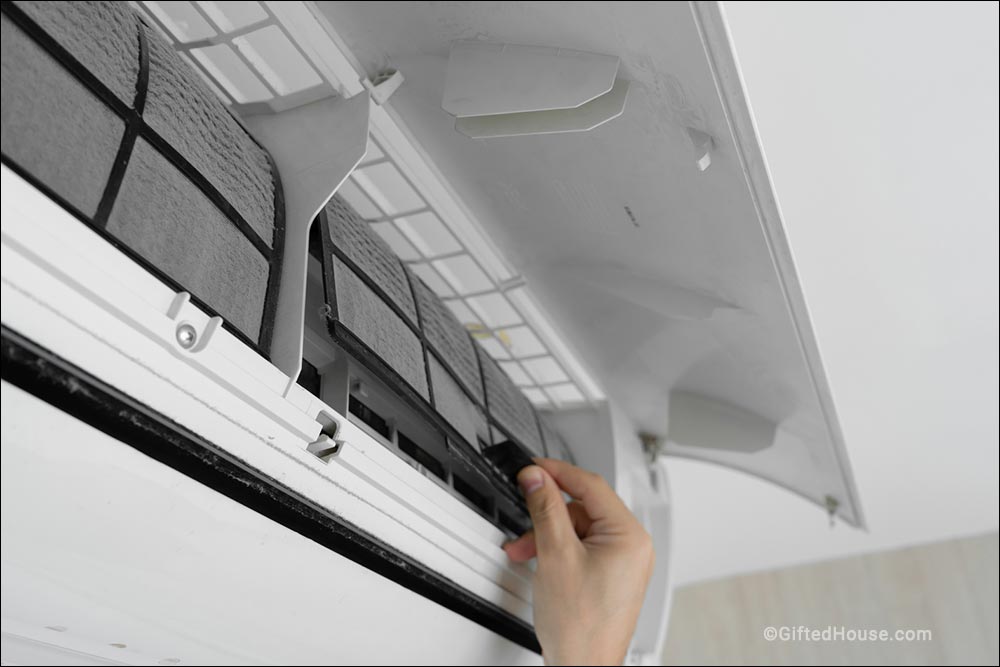Musty, stale, damp, foisty. However, you want to describe the off scent of your Air Conditioner, it’s clear to all who smell it that it is not pleasant!
During the summer months, it’s likely that you will need your AC on full blast. It’s time to find out why your AC is making that stale stench and what you can do to tackle it.
Why Does My AC Smell Musty?
A musty smell is the most common problem reported by homeowners about their AC unit. There are a few reasons why your air conditioning may be making this smell. Take a look below:
1. Drain Pan is Full
A full drain pan is the most common cause of a musty smell from your AC unit. As old water sits in the drain pan for a long time, mold and bacteria can begin to grow.
You may even begin to see external signs, such as water dripping down your wall or a yellowish tinge around the base of your AC unit.
2. Excess Moisture in Air Vents
If you live in a hot environment, your AC unit could be subject to excess humidity, which can cause too much moisture to build up in the AC system. If the AC unit is not cleaned correctly or regularly, it’s likely that mold will appear due to the excess moisture.
3. Clogged or Dirty Filters
Over time the filters within your AC can trap moisture or dirt. If you have had your AC unit switched off for a long time and you live in a humid climate, your filters can become clogged and release a stale smell when the AC unit is turned back on.
4. Frozen Evaporator Coils
This problem directly relates to dirty or clogged air filters. For the warm air from your home to be cooled by the AC unit and recycled back into the room, the air must flow freely. The airflow cycle will be blocked if the air filter is clogged or dirty, and water droplets caused by the humid air will collect on the evaporator coils. The water droplets will freeze on the coils as the AC continues to cool the air, leaving a musty smell.
5. Blocked Condensate Line
When water collects in your drain pan, it is drained through the condensate line, taking it outside your home. You can see the condensate line externally outside your house. This part of the AC unit can often grow mold or bacteria, which can cause clogs and release the musty smell inside your home.
6. AC Unit Size
A common mistake for homeowners is buying an AC unit that is not the correct fit for their home. It’s a little-known fact that not all AC units are the same, and some do not suit certain homes. This is due to the size of the unit in comparison to your home.
If your AC unit is too big for your room or home, then the air recycling motion happens too quickly and causing a problem in the process. Excess moisture can be apparent throughout your home as the air has not been properly dehumidified, causing a musty or stale smell.
How to Stop Musty Smell from My Air Conditioner?
The following 4 tips should help you fix the musty-smelling air conditioning unit at home.
Tip 1 – Clean Your Filters.
This is an easy fix solution and will wipe out the musty smell if a dirty or clogged filter is causing it.
- Turn off your HVAC unit. Note – you should always turn off your AC unit before you open or clean it.
- Open your AC unit. This will most likely require a screwdriver.
- Remove the filters. Note – Some AC units have multiple air vents, so make sure all the filters have been removed.
- Vacuum your filter. Use a small hoover (or hoover attachment) to remove any dust or dirt from your AC filter.
- Wash your filter. Soak your air filters in a solution of part warm water and part vinegar. Let it sit in the solution for around 45 minutes. Use a soft cloth to remove any access dirt.
- Rinse the AC filter in cold, clean water.
- Dry your filter. Let the filter dry naturally throughout the day or night. Note – Ensure the filter is completely dry before moving to the next step.
- Replace the filter.
Note – Some AC units need a new filter each time, and they cannot be cleaned. Make sure to check your AC requirements beforehand.
Tip 2 – Empty and Clean the Drain Pan and Condensate Line
- Turn off your AC unit.
- Open your AC unit. Some may models may require a screwdriver.
- Empty the drain pan and clean with soap. Allow this to dry naturally before replacing.
- Find the vent tee (the pipe that connects your AC exterior pipe to the drainage tray)
- Remove the PVC cap from the top.
- Clean the vent tee using a thin brush.
- Reattach the PVC cap.
- Head outside and find the AC pipe (condensate line)
- Use a thin brush to clean the inside of the pipe.
- You can use a wet/dry vacuum to remove any dirt or debris. Hold it firmly in place or use tape to secure it to the end of the pipe.
Tip 3 – Check Your AC Size
AC capacity is measured in British Thermal Units (BTU). Check the BTU of your air conditioner via the label on the condenser unit. The BTU will the second number you see (after the Model Number).
Check to see if your air conditioner is the correct size for your home here: Choosing the Right Size (Capacity) for Your AC unit.
Tip 4 – Hire an HVAC Technician
It’s a good idea to have an HVAC technician check your AC unit once a year to solve any growing problems and keep the unit clean.
If you have tried the above solutions to fix your air conditioner and you’re still suffering from a musty smell, then have an HVAC technician look at your AC unit and identify the exact cause of your smell.



